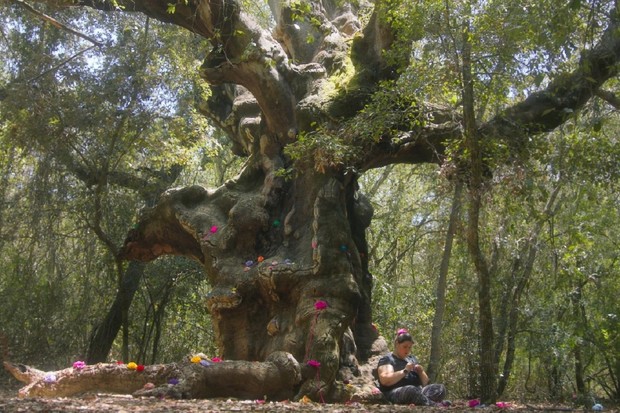previously published on Cineuropa
In her previous three mid- and feature-length documentaries, all of which were co-directed with other collaborators, Francesca Scalisi tackled a number of topics, such as microcosms disappearing in our ever-changing world (Bath People, 2015), staying in your home even when it’s falling apart (Half Life in Fukushima, 2018) and a young woman torn between tradition and modernity and between an imperative to obey the rules and an urge to break free (Digitalkarma, 2019). Her newest feature-length documentary Valentina and the MUOSters, world-premiered in this year’s Visions du Réel’s National Competition where it won a Special Jury Prize and now screened in DOK Leipzig’s International Competition Documentary Film section, is a synthesis of the various motifs explored in her previous three works. Interestingly, it’s also Scalisi’s first solo work in feature-length format.
Our titular protagonist is a 26-year-old woman living with her parents in her native village of Niscemi in Sicily. She has never moved out of her home, never had a job nor a driver’s licence to travel from her family’s farmhouse to the centre of the village. She still has her hobbies, like crocheting woollen flowers and walking to the woods to her favourite ancient oak tree, and she still dreams of moving away and finding a job as a cook. But she has put them on hold in order to be close to her ageing parents, by whom she’s constantly scolded, either for being too unrealistic in her desires, or too lacking in ambition.
The second part of the film’s title is a play on an acronym. MUOS is a satellite communication system established, operated and guarded by American soldiers, which serves the military purpose of spying on other armies’ movements in the Mediterranean and Central Asian regions, and, more recently, on a spy-drone launching base. The locals, however, see it as a health hazard, mainly because of the strong electromagnetic waves its antennas transmit. The antennas themselves can constantly be heard, since their humming is louder than natural sounds, which leads the few remaining locals to suspect they might just be responsible for all the droughts and forest fires. Their protests, however, bear little fruit, regardless of the political “colours” the protesters wear. Will Valentina ever free herself from this place and from the role of an eternally clumsy child, imposed on her by her parents?
Valentina and the MUOSters echoes the work of two great contemporary masters of Italian documentary filmmaking: Gianfranco Rossi (the portrait of a small community caught up in the turmoil of global events brings Fire at Sea to mind) and Roberto Minervini, especially his opus about people on the margins of society in the American South. But Francesca Scalisi opts for a more intimate approach, centred on her protagonist and her immediate surroundings. In this respect, the cinematography of the director’s regular collaborator Stefania Bona, who adopts a boxy 4:3 aspect ratio, foregrounds Valentina to the fullest, whilst also getting the most out of the usually barren landscape. But the real “MVP” among the film crew is composer and sound designer Olga Kokcharova, whose work in both departments creates the perfect synergy of droning noise, reminding us that Valentina and her family feel constantly threatened by a situation which far exceeds their ability to change it.



















